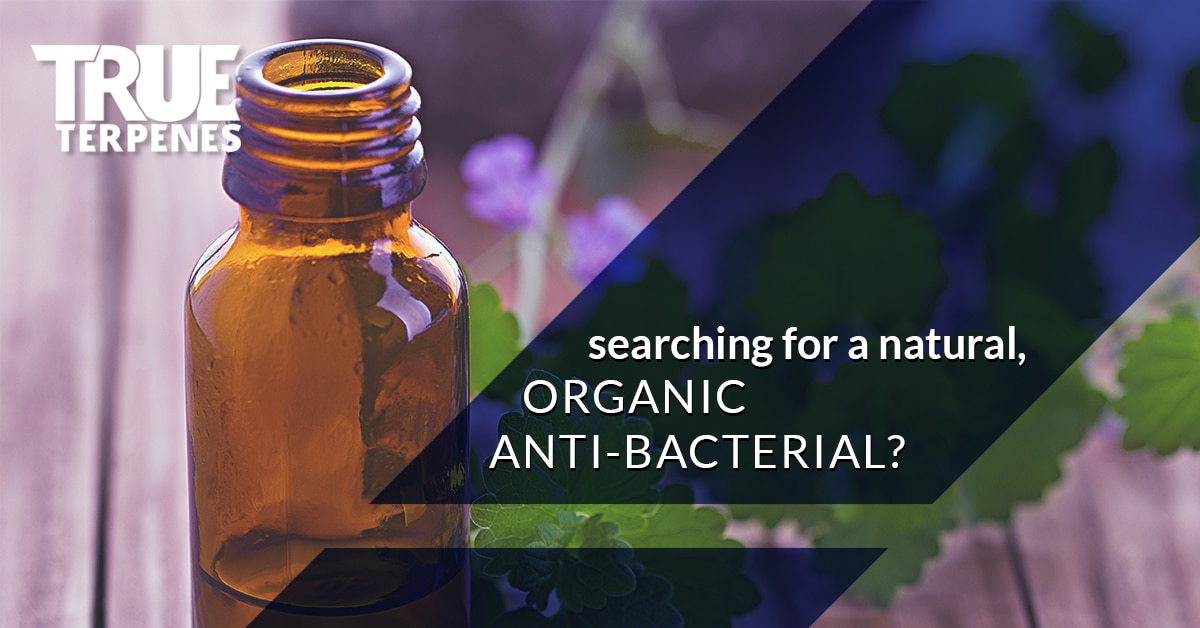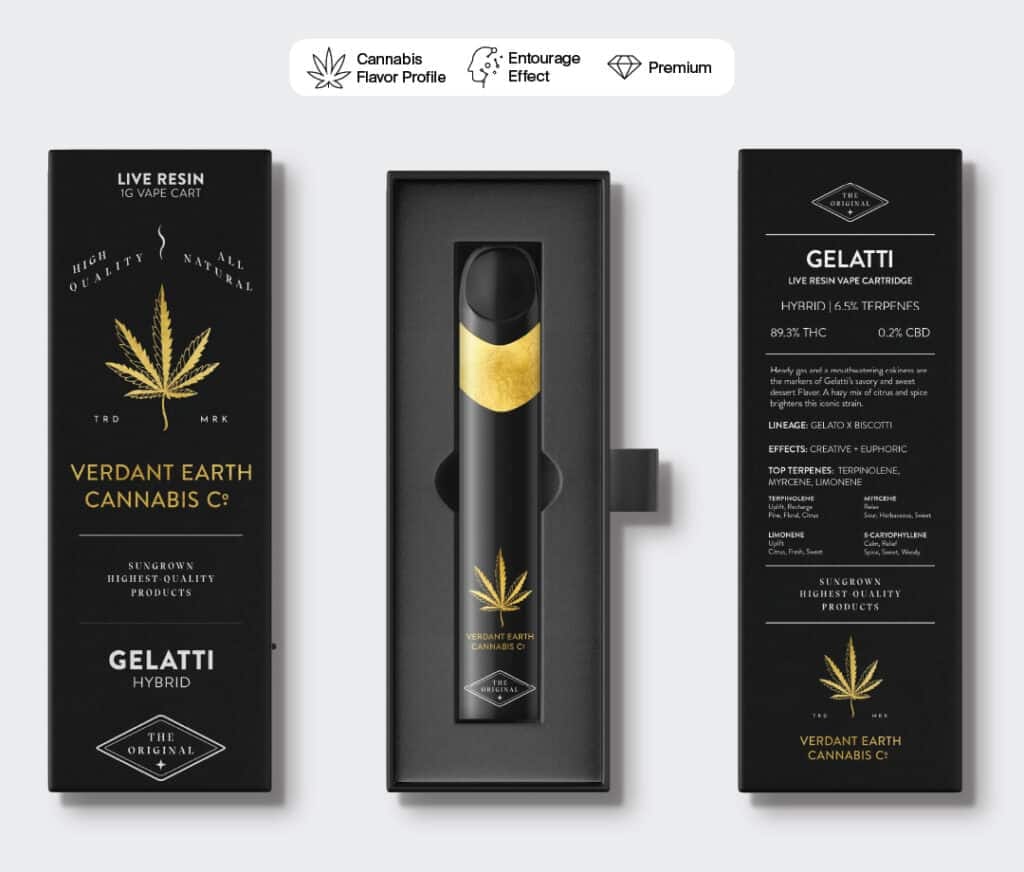May 30, 2018
Searching For A Natural, Organic Anti-Bacterial?

Did you cut your hand? Feeling a little sick? When your body fights an infection or an illness, it’s battling against one-of-two things, a virus or a bacteria. For example, strep throat occurs when the streptococcus pyogene bacteria infects the lymph nodes in and around the throat. If you contract the bacteria, you will most likely need to see a doctor for antibiotic medication to remedy the illness. However, in some lesser cases of bacterial infection, you can prevent the infection from becoming too severe or even spreading through your body with anti-bacterial treatment.
In this post, we’ll share six terpenes that have been shown in various studies as antibacterial agents against bacteria. Ready to shop terpenes for sale now? We offer isolates and profile strains to fit yo!
Six terpenes that have shown anti-bacterial properties terpene needs
Across various studies, the terpenes we’re about to share below have shown anti-bacterial properties. This means that the terpenes when used against specific bacteria either reduce the growth and spreading of the bacteria or assist in the neutralization of the bacteria entirely. It’s important to understand that bacteria and viruses are different. Bacteria are single-celled microorganisms that can cause infections like strep throat, tuberculosis, or UTIs. Antibiotics can be used to fight bacterial infections, but they are ineffective against viruses. In any case, anti-bacterial agents directly interfere with the growth and spread of bacteria.
Humulene
Aroma – Woody
Sources – Hops, Japanese Spicebush, ginseng, spearmint, ginger, common sage, Chinese Laurel Tree
Studies:
- 2006 Phytotherapy Research (PTR) – Composition and antibacterial activity of Abies balsamea essential oil.
Geraniol
Aroma – Sweet, citrus, floral, rosy, fruity, waxy
Flavor – Lemon peel, passion fruit, geranium, peach, rose
Sources – Citronella, lemongrass, or rose
Studies:
- 2015 Journal of Medicinal Food – Antibacterial Investigation of Thyme Essential Oil and Its Main Constituents in Combination with Tetracycline.
- 2012 Microbiology – Sensitivity of pathogenic and commensal bacteria from the human colon to essential oils.
- 2012 Current Opinion in Biotechnology – Essential oils from aromatic herbs as antimicrobial agents.
- 2003 The Journal of Nutrition – Plant-derived monoterpenes suppress hamster kidney cell 3-hydroxy-3-methylglutaryl coenzyme a reductase synthesis at the post-transcriptional level.
Eucalyptol
Aroma – Minty, camphor, spicy
Sources – Eucalyptus, camphor laurel, tea tree, bay leaves, mugwort, wormwood, mugwort, common sage, rosemary, or sweet basil
Studies:
- 2013 Pharmaceutical Biology – Essential oil variation in the populations of Artemisia spicigera from northwest of Iran: Chemical composition and antibacterial activity.
Terpinolene
Aroma – Fresh, lemon, piney, citrus, sweet, woody
Sources – Pine, fir, apple, lilac, cumin, tea tree,
Studies:
- 2005 Journal of Biosciences – Essential oil composition and antimicrobial activity of Diplotaenia damavandica.
- 2010 Natural Product Research – Chemical composition and antibacterial activity of essential oil of Heracleum rechingeri Manden from Iran.
- 1995 Journal of Applied Bacteriology – Antimicrobial activity of the major components of the essential oil of Melaleuca alternifolia.
Alpha Bisabolol
Aroma – Nutty, fruity, coconut
Sources – German Chamomile, Myoporum Crassifolium
Studies:
- 2013 International Journal of Food Microbiology – Antimicrobial activity of essential oils and five terpenoid compounds against Campylobacter jejuni in pure and mixed culture experiments.
Alpha Pinene
Aroma – Piney, earthy, woody
Flavor – Piney, sharp, cedarwood
Sources – Conifer trees, eucalyptus, rosemary, sage, ironwort, turpentine trees, citrus
Studies:
- 2007 Brazilian Journal of Pharmaceutical Sciences – Inhibitory effect of β-pinene, α-pinene and eugenol on the growth of
potential infectious endocarditis causing Gram-positive bacteria - 2011 Molecules – Comparative Anti-Infectious Bronchitis Virus (IBV) Activity of (-)-Pinene: Effect on Nucleocapsid (N) Protein.
Why use anti-bacterial agents?
The benefits of using anti-bacterial agents are numerous. The biggest benefit is the ability to fight and kill off unwanted bacteria in or on the body. A common concern across the health industry are the risks of infection. Fortunately, True Terpenes products are certified natural, organic, food-grade, and non-GMO, which means there are nothing but benefits when you use them.
Shop terpenes online for sale now!
True Terpenes offers isolates and strain profiles online so you can find the best terpene for your needs. In the case of anti-bacterial agents, various studies have shown the above terpenes as effective. Our terpenes are naturally sourced from organic plants and resources from around the world. They’re food-grade and non-GMO certified, which means they’re safe to ingest as well as use in solutions. Want to find a terpene for you? Shop online now!





